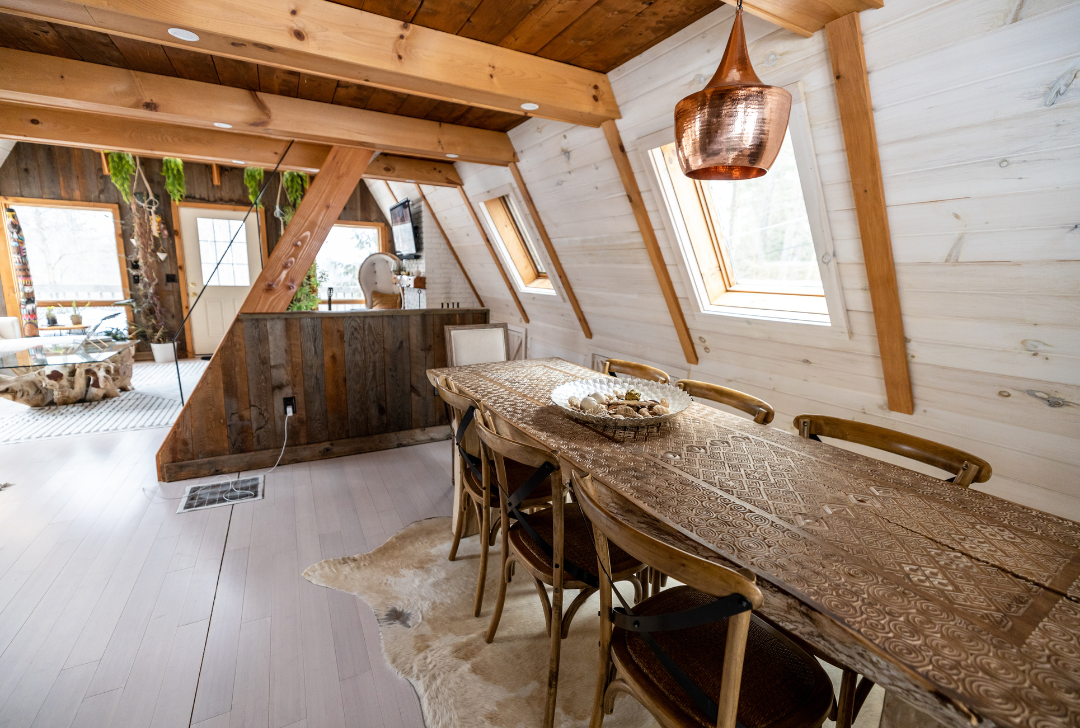Welcome to our blog, where we delve into the exciting world of real estate and explore different ways to maximize the potential of your property. In this post, we'll discuss the pros and cons of utilizing your home as an Airbnb, shedding light on the opportunities and challenges it presents. Whether you're considering renting out a spare room or listing your entire home, read on to make an informed decision for your property's future.

Pros of Using Your Home as an Airbnb
Rental Income Potential
One of the biggest draws of becoming an Airbnb host is the opportunity to generate additional income. By offering your home as a short-term rental, you can tap into a booming market of travelers and tourists looking for unique and personalized accommodations. The income generated can help cover your mortgage payments, supplement your monthly budget, or even serve as a substantial source of revenue.
For example: Let's say you live in a popular tourist destination like Vancouver. By renting out a spare room for $100 per night and having an occupancy rate of 70%, you could potentially earn over $25,000 in additional income annually.
 Photo by Filios Sazeides on Unsplash
Photo by Filios Sazeides on Unsplash
Flexibility and Control
As an Airbnb host, you have control over when you rent out your property. This flexibility allows you to accommodate your own travel plans or personal commitments. You can choose to host guests on specific dates or block off certain periods, ensuring that your home remains available when you need it.
Suppose you frequently travel for work or have seasonal vacation plans. By listing your home on Airbnb during your absence, you can offset your travel expenses while ensuring your property remains occupied and cared for.

Cultural Exchange and Networking
Airbnb provides a unique opportunity to meet people from different backgrounds and cultures. Hosting guests from around the world can be a rewarding experience, enabling you to learn about different customs, cuisines, and perspectives. Additionally, the positive interactions and reviews you receive can help build your online reputation as a hospitable host, leading to increased bookings and referrals.
Imagine hosting a family who is visiting your city for the first time. You can offer a chance to share local knowledge, recommend hidden gems, and create a lasting connection. These experiences can enrich your own understanding of different cultures and create lifelong memories.
Cons of Using Your Home as an Airbnb
Increased Responsibility and Time Commitment
Becoming an Airbnb host requires effort and dedication. From managing bookings and coordinating check-ins to maintaining cleanliness and addressing guest concerns, you'll be responsible for the day-to-day operations of your rental. This can be time-consuming, especially if you have a full-time job or other commitments. For example: Responding promptly to guest inquiries, scheduling cleanings, and performing necessary maintenance tasks all require effective time management and attention to detail.
 Photo by Filios Sazeides on Unsplash
Photo by Filios Sazeides on Unsplash
Legal and Regulatory Considerations
Before listing your home on Airbnb, it's crucial to familiarize yourself with local regulations and zoning laws. Some cities and municipalities have restrictions or specific requirements for short-term rentals. Failure to comply with these regulations can result in fines or legal issues.
For instance, certain areas impose limits on the number of days a property can be rented out, while others require permits or licenses for short-term rentals. Familiarize yourself with the specific rules and regulations in your jurisdiction to avoid potential complications.
Potential Wear and Tear
Hosting numerous guests over time can lead to increased wear and tear on your property. Frequent turnover can result in higher maintenance costs and the need for more regular updates and repairs. Additionally, accidents or damage caused by guests may require you to invest time and money into restoring your home's condition.
The constant flow of different guests with varying levels of care and respect for the property can lead to additional cleaning and repairs. Regularly inspecting your home and investing in preventive maintenance can mitigate these issues.

When evaluating the pros and cons discussed above, it can help in deciding whether to turn your home into an Airbnb. While the potential for rental income, flexibility, and cultural exchange is enticing, it's essential to weigh these benefits against the increased responsibilities, legal considerations, and potential wear and tear. By conducting thorough research, understanding local regulations, and being prepared for the challenges, you can make an informed decision that suits your personal circumstances and property goals.
Remember, becoming an Airbnb host is not for everyone, but with proper planning and management, it can be a rewarding endeavor that adds value to your property and enhances your financial situation.
Check out the Government of Newfoundland FAQ – Tourist Accommodation and Regulations
Posted by Infinity Admin on

Leave A Comment